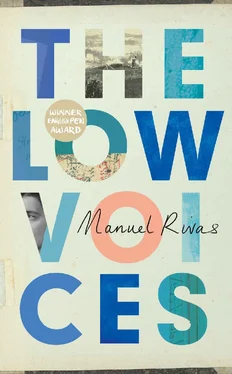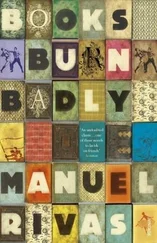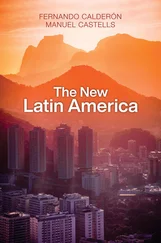Manuel Rivas - The Low Voices
Здесь есть возможность читать онлайн «Manuel Rivas - The Low Voices» весь текст электронной книги совершенно бесплатно (целиком полную версию без сокращений). В некоторых случаях можно слушать аудио, скачать через торрент в формате fb2 и присутствует краткое содержание. Год выпуска: 2016, Издательство: Harvill Secker, Жанр: Современная проза, на английском языке. Описание произведения, (предисловие) а так же отзывы посетителей доступны на портале библиотеки ЛибКат.
- Название:The Low Voices
- Автор:
- Издательство:Harvill Secker
- Жанр:
- Год:2016
- ISBN:нет данных
- Рейтинг книги:5 / 5. Голосов: 1
-
Избранное:Добавить в избранное
- Отзывы:
-
Ваша оценка:
- 100
- 1
- 2
- 3
- 4
- 5
The Low Voices: краткое содержание, описание и аннотация
Предлагаем к чтению аннотацию, описание, краткое содержание или предисловие (зависит от того, что написал сам автор книги «The Low Voices»). Если вы не нашли необходимую информацию о книге — напишите в комментариях, мы постараемся отыскать её.
A brilliant coming-of-age novel from one of Spain’s greatest storytellers,
is a humorous and philosophical take on memory, belonging, and the nature of storytelling itself.
The Low Voices — читать онлайн бесплатно полную книгу (весь текст) целиком
Ниже представлен текст книги, разбитый по страницам. Система сохранения места последней прочитанной страницы, позволяет с удобством читать онлайн бесплатно книгу «The Low Voices», без необходимости каждый раз заново искать на чём Вы остановились. Поставьте закладку, и сможете в любой момент перейти на страницу, на которой закончили чтение.
Интервал:
Закладка:
Another historical place was A Casa Vella — also known as the Frenchman’s House — the ruins of an old ecclesiastical building that was badly affected by the cruelty of the Napoleonic battle on 16 January 1809. More or less around that date, in the same place, but in our times, the historical effect of the bat’s flight led to warlike skirmishes between the young people of Palavea-Cyprus and Castro. They were the ones who attacked, since they were more urban. The Castro lot took up defensive positions in the ruins, as always. There were people dressed up as Indians, cowboys, Romans, and even the odd Mexican in a mariachi hat. Whether we were Celtic or not, we clearly originated from the Far West, including those from Cyprus. A historical mix-up that normally ended up in a game of football, that more sophisticated form of war that requires the ideas to reach your feet.
One of our local heroes was Ramón (Moncho) Tasende, who would become Spanish 5000-metre champion, but back then competed epically in cross-country races. And, before that, in cycling. He ran like an Ethiopian. His younger sister, Maruxa Tasende, was of the same stock. She was a great athlete, a long-distance runner. But the first time we saw her in action was with the women’s football team during carnival. The world was upside down. Never again did I see someone run and dribble down the wing as she did.
Moncho Tasende never drank wine or beer, only Mirinda soft drinks or something like that, but the greatest spectacle, which we followed enviously, was watching him eat mounds of monkey nuts. He would pile them up into a pyramid on top of one of the barrels in Leonor’s pub. ‘It’s because of the fibre!’ he used to explain. And he was right. If one really were a writer, this is the menu one would have. Because what literature wants is fibre for cross-country running. In Castro, you had to be quick when it came to being born or dying. Even when deceased, you had to walk, since the cemetery was miles away, alongside St Vincent’s Church. There was a dirt track to Elviña — that was, until man landed on the moon, since it was just before the Apollo 11 landing in the summer of 1969 that the track got tarmacked. There was a lot of talk about astronauts back then, and the man who operated the tar gun, moving about Castro in a white suit with floating steps over the gravel, certainly looked as if he’d just come from a NASA space mission. Until he took off his helmet. It was very hot, something that was worsened by the sweating of the asphalt. His face was covered in the gelatinous glue of a jellyfish. Someone ran to offer him a jug of water. It took him a while to speak as he caught his breath, the words melting on his lips. Our astronaut finally explained that he’d been sent by the county council. And the work, for what it was, was not particularly well paid.
11. The Weight of the World on Their Heads
SHE CARRIES A shape that is about her size, but gives the impression it’s heavier than she is. It’s not just any old shape. The washerwoman’s bundle is a perfect sphere. Resting on her head. Sometimes, there are several of them, in a caravan. Like the women carrying conical pyramids of a hundred lettuces each in their baskets.
The topography of paths was largely a construction of women carrying essential things on their heads. In Castro de Elviña, old roads came together, like ‘The Mountaineers’, an old royal road, and cart tracks with names that evoked not just a destiny, but a way of walking. ‘Apparition’, for example, along which walked the living and the dead. ‘Goblin’. These deep pathways formed part of a loom on which the walker’s shuttle wove the known and unknown that could take you anywhere in Galicia. In addition to the main routes, throughout the whole territory, hill and dale, there was a palimpsest of writing on the ground, cryptic in appearance, but which always led to a place-in-waiting. My mother tells me, ‘Follow the path of the broody hen.’ And they really existed. The hen. The path. The nest. Or the road to Perfecto’s mill. That also existed. The mill. And Perfecto.
My favourite was the overgrown road. The track to A Cavaxe. The old path that came from Mesoiro Valley and skirted the fort in Castro. Each path has its own imagination. Paths die whenever they stop telling stories. This path I’m talking about was overgrown for much of the year. It had fallen into disuse. Besides, we lived a long way from there, over on the other side. And yet my sight became entangled in it. I remember one day in winter, it was raining and a funeral procession appeared around the bend. This scene taken out of a film wasn’t entirely without reason. Mesoiro and Feáns belonged to the parish of St Vincent of Elviña, and they would often come on foot to bury their dead, bearing the coffin on their shoulders for several miles. The overgrown path opened that day to reveal the extreme gait of sadness. Moving in heavy, congested order, the black umbrellas raised like tarred shields against the leaden sky, the funeral procession advanced. What they were carrying was a small, white coffin. Whenever a child died, it was an angel dying. But I had the impression that day, I don’t know why, that God himself had died. Had got smaller. Had curled up inside a bluish-white coffin under the storm.
I felt great respect towards that path to A Cavaxe. The way it opened and closed. It opened again, and there was the disturbing vision of some young lads from the other side of Orro, carrying a hunted wolf tied to a stretcher, the ghost of a wolfless wolf, a hide that death itself had abandoned. It may have been the last wolf, and they were the last wolf men. Even in the way they asked for coins, they demonstrated a lack of enthusiasm.
One day, on the path to A Cavaxe, some acrobats turned up. It was around the time the Price Circus came to A Coruña, pulling in the crowds, with Pinito del Oro on the trapeze. But this small group of circus performers used to do the rounds of villages and suburbs. I don’t remember what they were called — we used to call them the Saltimbancos, which wasn’t a bad name. Their main acts were the Wise Donkey, the Invincible Man and the acrobatics of the Flying Girl. They performed two nights in Castro, in a field belonging to Felipe, a farmer who once paid us five pesetas for helping with the threshing and gave us the money in such a way that we wore it like a medal. Which just goes to show how important the manner of giving is. People really enjoyed the number with the donkey and the strongman, and other distractions, but not nearly so much as the acrobatic girl, who, as soon as she appeared on stage, with what for me was a death-defying leap, formed part of the Enigmatic Organisation of the Unforgettable. She was just a girl, but she grew before our very eyes. We watched her grow. She had very long hair gathered in a ponytail. This also responded to one of the senses. The final act was the Flying Girl. She climbed up onto the shoulders of the Invincible Man, tied a tall metal platform to him with a harness and, attaching her ponytail to the top of the pinnacle, gave herself a push and started turning and turning in the night. Without support, with only the mooring of her hair. There is, in the Enigmatic Organisation of the Unforgettable, a second image of the Flying Girl. It’s the following day, next to the Laranxeiro river, the washerwomen’s favourite. The Flying Girl is in a bathing suit. Washing her hair very slowly. She lies down in the sun, on the grass. Her hair covers half the field. What a lovely surprise for the grass.
On Sundays, along the path to A Cavaxe, there appeared horses with riders dressed as mariachis. No, they hadn’t just come off a television or film set in order to start walking. Groups of Mexican musicians were famous back then. They would come down from the mountains in Galicia as if they’d just arrived from Jalisco. Not anymore. The one arriving now is not on horseback. He’s a cyclist with his bike over his shoulder. I have always admired people who carry their bikes, rather than the other way round. In Castro, there were several such cyclists I hardly ever saw riding their bikes. They never pushed their bikes very hard. They would delicately place a hand on the handlebars, and in this way the two of them would lead each other along. A high degree of civilisation.
Читать дальшеИнтервал:
Закладка:
Похожие книги на «The Low Voices»
Представляем Вашему вниманию похожие книги на «The Low Voices» списком для выбора. Мы отобрали схожую по названию и смыслу литературу в надежде предоставить читателям больше вариантов отыскать новые, интересные, ещё непрочитанные произведения.
Обсуждение, отзывы о книге «The Low Voices» и просто собственные мнения читателей. Оставьте ваши комментарии, напишите, что Вы думаете о произведении, его смысле или главных героях. Укажите что конкретно понравилось, а что нет, и почему Вы так считаете.












